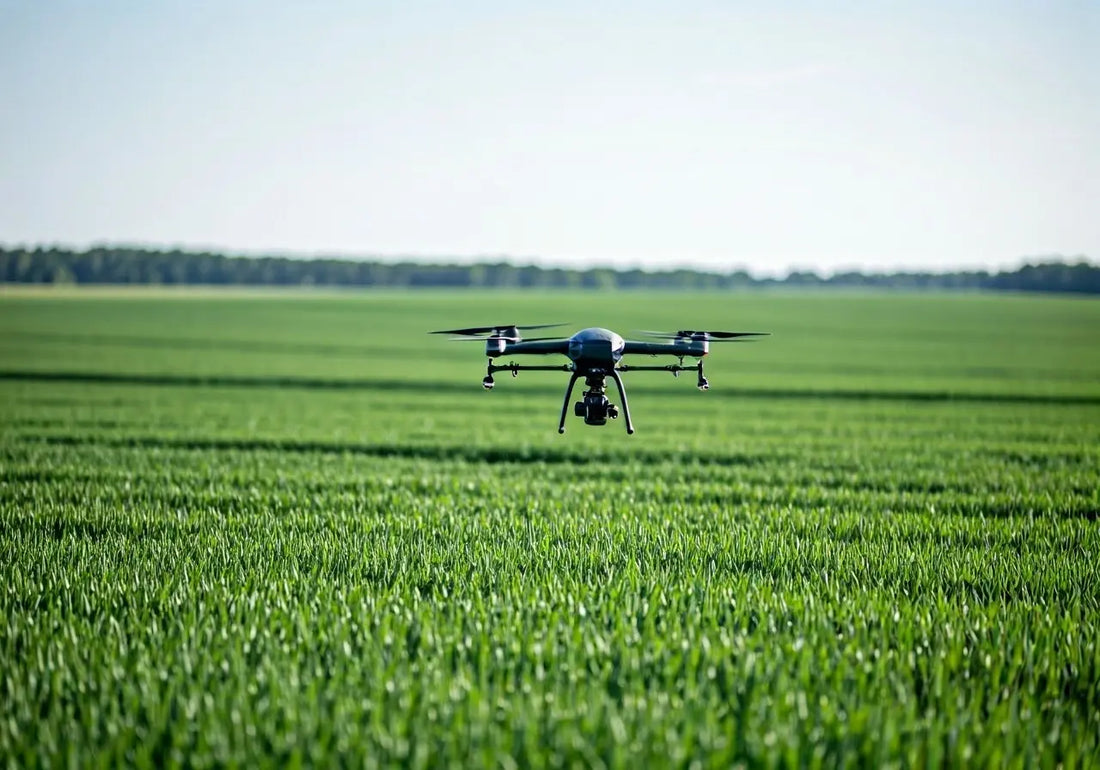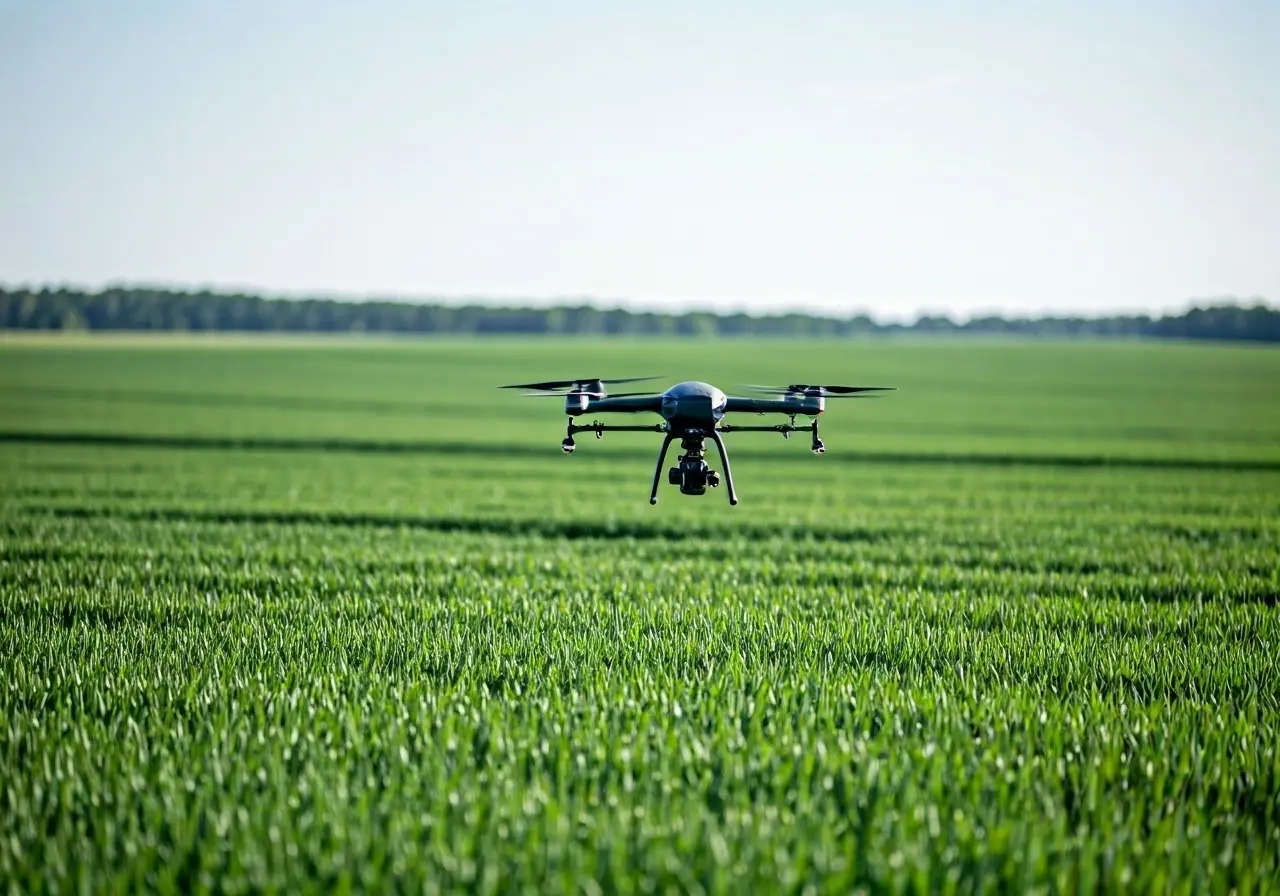
Exploring the Benefits of Agricultural Spraying Services for Modern Farms
Share
In the dynamic world of modern agriculture, efficiency and productivity are more critical than ever. One advancement helping farmers meet these demands is agricultural spraying services. These services play a vital role in crop management, offering numerous benefits for today’s farms. Let’s delve into the advantages that these services bring to the table.
Enhancing Crop Protection and Yield
Agricultural spraying services have revolutionized the way farmers approach crop protection. These services use state-of-the-art technology to distribute pesticides and fertilizers accurately and efficiently across fields. By targeting only the areas that require treatment, farmers can prevent over-application, which safeguards both the crop and surrounding ecosystems. According to a comprehensive guide, drones equipped with high-resolution imaging allow for precise interventions, ensuring that issues are mitigated before serious outbreaks occur. This precision not only leads to healthier plants but also boosts overall yields. With agricultural spraying services, crops receive tailor-made solutions that enhance resilience against pests and diseases, ultimately resulting in a bountiful harvest season after season.
One key advantage of utilizing agricultural spraying services is the ability to enhance crop yield through tailored applications. This method provides the exact nutrients needed, optimizing plant growth and health. Often, traditional spraying methods result in blanket applications, leading to wastage and potential environmental harm. In contrast, modern spraying services employ sophisticated tools that ensure each drop of fertilizer or pesticide is effectively used. For instance, targeted spraying can help reduce the incidence of crop diseases by applying biological agents directly where needed, maintaining the delicate balance of the ecosystem. This approach revolutionizes crop management practices, creating a win-win situation for farmers striving for maximal yield with minimal ecological impact.
Optimizing Resource Management
Effective resource management is crucial for sustainable farming. Agricultural spraying services excel at optimizing the use of fertilizers, pesticides, and other inputs. By leveraging technologies such as GPS mapping and variable rate technology, these services ensure that resources are used judiciously and where they are needed the most. This not only saves costs but also minimizes the environmental footprint of farming activities. The precision afforded by these technologies helps farmers make data-driven decisions, reducing waste and increasing the sustainability of agricultural practices. According to agricultural experts, such efficiency in resource management directly translates into cost savings and reduced chemical usage, making farms more environmentally friendly.
By partnering with professional agricultural spraying services, farmers gain access to innovative technologies tailored for resource conservation. These services utilize drones capable of delivering precise herbicide and fertilizer dosages to specific areas, significantly lowering chemical runoff and preserving valuable nutrients. Additionally, they are equipped with advanced sensors and analytics software, which facilitate real-time monitoring and adjustments, optimizing resource application as conditions change. This level of sophistication ensures that inputs are not only applied economically but also synergistically, allowing for better nutrient uptake and healthier plant growth. This proactive management of resources is essential for modern farms aiming to achieve high productivity with minimal environmental impact.
Spraying services also aid in optimizing water usage, a critical aspect of modern agriculture given the increasing concerns about water scarcity. Drones and other spraying technologies precisely measure soil moisture levels and apply water where needed, reducing wastage. This targeted irrigation approach, combined with advanced imaging techniques, assists in maintaining optimal soil health and moisture, which is vital for plant growth. By adopting such practices, farmers not only ensure the longevity and health of their crops but also uphold an environmentally responsible approach to farming, conserving water resources and reducing operational costs.
Reducing Labor and Time
The implementation of agricultural spraying services dramatically reduces the labor and time required for crop management. Traditional methods often involve extensive manual labor, with workers needing to walk long distances across fields to apply treatments. However, with the introduction of advanced spraying technologies, this labor-intensive process is streamlined. Drones and automated sprayers can cover extensive areas swiftly, handling what would typically require a substantial workforce in a fraction of the time. This reduction in labor not only brings down operational costs but also mitigates the risk of human error, ensuring treatments are applied uniformly and accurately.
Beyond labor reduction, time savings are one of the most immediate benefits observed by farmers who use spraying services. Speed is of the essence in farming, particularly when responding to pest outbreaks or inclement weather conditions. Modern spraying services provide a level of responsiveness that is unmatched by manual labor, allowing farmers to act swiftly and effectively. According to industry insights, automated spraying technologies can complete tasks up to 70% faster than traditional methods, freeing up valuable time for farmers to focus on other critical aspects of their operations. This efficiency is a game-changer, particularly during peak growing seasons when every minute counts towards achieving optimal crop outcomes.
Adapting to Technological Advances
Incorporating the latest technological advances is crucial for success in today’s agricultural landscape. Spraying services have embraced innovations such as drones and GPS mapping, which enable farmers to apply products with unprecedented precision. These advancements ensure that every square meter of a farm receives the care it requires, ultimately boosting productivity. Adaptation to technology extends beyond mere equipment upgrades—it also involves leveraging data analytics for more informed decision-making. This combination of technology and data provides farmers with the tools they need to optimize operations and enhance crop management strategies comprehensively.
Farmers who adopt these advanced spraying techniques can stay ahead of technological trends, using digital tools to manage their fields more effectively. Innovations such as IoT devices and cloud-based platforms allow for seamless integration of farm operations, enabling real-time monitoring and adjustments for enhanced productivity. As highlighted in Why Drone Trailers are Essential for Modern Farming, these technologies are pivotal in modern agriculture, offering unprecedented insights into field conditions and facilitating rapid responses to emerging challenges. With these tools, farmers can ensure they are at the forefront of modern agricultural practices, using every available resource to its fullest potential.
Sustainability and Environmental Considerations
Sustainability is more than just a buzzword in modern farming—it’s a necessity. Agricultural spraying services have transformed how farms approach environmental stewardship by minimizing chemical usage and promoting eco-friendly practices. Techniques such as targeted application reduce the likelihood of runoff and preserve surrounding ecosystems. Environmentally conscious practices align with global sustainability goals, allowing farmers to market their produce as both environmentally responsible and superior in quality. This alignment with sustainable practices is attractive to a growing base of eco-conscious consumers, providing an additional market advantage.
A crucial component of sustainable farming is the reduction of carbon footprints. By using electric-powered drones as opposed to traditional fuel-driven machinery, farms decrease their dependency on fossil fuels and lower their emissions. This transition aligns farming with broader environmental agendas, setting a precedent for eco-friendlier agriculture. Additionally, by maintaining soil health through precise chemical applications and reduced soil compaction, farms further commit to sustainable land management practices. This not only protects the current landscape but ensures that farmland remains productive and viable for future generations, connecting today’s farming practices with tomorrow’s food security.
Embracing Efficiency and Sustainability in Modern Farming
In summary, agricultural spraying services offer modern farms a multitude of advantages that can significantly enhance productivity and sustainability. By embracing these services, farmers are equipped with effective tools to manage crops, ensuring healthier yields and optimized resource use. In a rapidly evolving agricultural landscape, these services prove invaluable in meeting the demands of modern farming.

